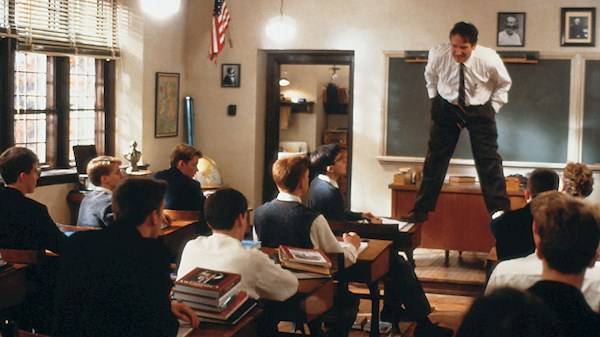Black Mountain, NC. What a strange semester. It started out like any other: welcoming new students to campus, curating classes anew as a recent faculty hire, looking forward to introducing students to the rich legacy of reading books. Then half-way through, we left for Spring Break and never came back. And I have this nagging dread that I didn’t teach very well in the second half.
Some of that fear may be a common feature of the “new normal” this pandemic created. Though I’ve taught online classes before, they were supplemental more than the main mode. Similar to this pandemic as a whole, I’m in uncharted territory. Does anyone know if we’re doing this well? Should I have done synchronous lectures or asynchronous? Did I ask too much of my students or too little? Should I have done more lectures or fewer? Did I change the assignments too much or not enough? Was I engaged enough for students to know I was around to help, or did too many students fall through the virtual cracks? To all of these questions, I offer a colossal size shrug.
Some of my personal dissatisfaction could stem from sheer exhaustion. Teaching from home with a young family (3 kids under 4) is no joke. Shifting attention from teaching to feeding, potty-training to reading, grading to dealing with screaming children at some stage of annoying each other to hurting one another is not for the faint of heart. By 3 p.m. most days, I was ready to quit, cry, scream, or punch something—mostly all at the same time.
I think I designed everything right. I think I was present enough and provided enough feedback. I think I made the right calls with changing assignments and formats. But I have this lingering sense that I failed. I don’t really know. But there’s this ache that I have failed to deliver.
As I reflected on the latter half of this semester with a colleague, we were lamenting the exhaustion, the hours, the distraction of kids, the hours of Zoom/Colloborate/Teams, the half-hearted efforts of our students, our own half-hearted efforts of responding to student’s forum posts and essays, etc., etc. Days felt like we were running to stand still (as U2 sang).
I felt like it wasn’t enough to teach my assigned classes. I had to take this pretty terrible situation and make it special. Why? Why have I felt this urge to entertain, to be interesting, to make sure this meant something? Why did all these other professors who were posting public content seem like they had their lives together while mine was imploding?
And then I realized something about the space where education happens. I had to compete with the competition of distraction that is the internet. Students are a short click away from e-mail, YouTube, Netflix, porn, reddit—anything they want. The mode of online delivery is inherently distracting, and I must fight for attention. In short, the dread was that I had to be entertaining. I had to bring the charisma. In the residential classroom, I can let the course content be interesting. For most students, the expectation is that a classroom is for education. There’s nowhere else to go. Not so with the internet. A literal billion things can happen here in the virtual space. While I can add some features to the content and try to involve students in compelling ways, I’ll never out-entertain Netflix.
The whole mode of online education screams that now I must be the source of attraction. But I’m not entertaining. In fact, I’m pretty unentertaining. If you ask most of my students, they may even say I’m boring.
But I care. I desperately care—not only about the students I teach but about teaching well. Unfortunately, caring doesn’t come across in online formats. In many ways, caring can’t come across in virtual formats. Bruce Wilshire lamented the lack of overall care in higher education 30 years ago in The Moral Collapse of the University. This deficiency has only grown in the intervening years and intensifies in an online format. He argues for the genius of the Latin word educare: to lead or draw out. He contrasts this idea with instruere: to build in. Rather than excitedly leading students out to confront basic and big questions, instruere builds in information and technique. The space in which virtual education happens removes the care from educare. It’s all instruction here.
In the “attentional commons” as philosopher Matthew Crawford puts it, something like education happens. There is all the information you need. There are assignments for students to turn in and for me to grade. But what happens is robotic—artificial and manufactured. There’s no intimacy or risk. We can play it safe behind our safe screens. The chaotic “ecosystem of interruption technologies,” as Cory Doctorow calls it, is not humane. When education plays in this space, its relational dimension suffers, and everything becomes more difficult—to connect, to complete, and to assess.
I think students understand. As social beings, they’re longing to get back to in-person contexts. They feel the artificialness of the education. It was a necessary move for a time. But they’re hoping for the fall—not only to see a curb in COVID-19 but to be together again in the classroom.
Me, too, friends. Me too.

Well said, Alex. For my part, I’d rather quit being a college professor completely, than continue to teach online. Having to teach online confirmed every one of my previous prejudices about online coursework. If all we’re doing is credentialing, then who cares what the format is. We can have drive-by degrees, for all I care. But I can’t go to work every day knowing that credentialing is all I’ll ever be able to do.
Comments are closed.